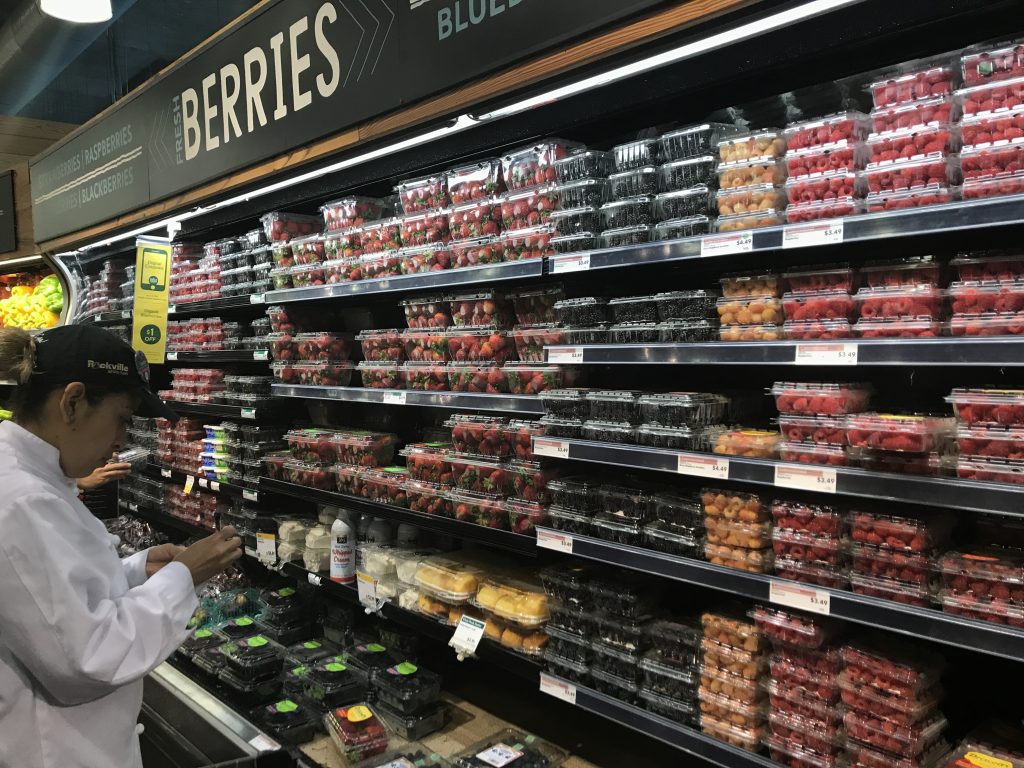
America: the land of plastics
Cucumbers are sleeved in plastic films, and baby carrots are filled in resealable plastic pouches. Even Whole Foods, the organic supermarket chain, wraps its fruits and veggies in transparent plastic boxes. The quantity of plastic used in American supermarkets is something that really annoys me.
Many customers want to make healthy choices and buy produce grown without certain pesticides, but few of them spend a single minute considering the environmental impact of plastic. Such a paradox!
Plastic packaging is everywhere because it makes our lives more convenient. Baby carrots are peeled, fresh fruits are cut and sliced, salads are ready to eat, etc. However, as I’ve heard from other American friends, none of this packaging was available 30 years ago.
Dear Americans, you’re simply crazy!
I live in a county in Maryland where I pay five cents per bag at the supermarket. This same county makes me sort my trash into plastic/cans, paper/cardboard, organic waste (not mandatory yet), and regular trash. Of course, I comply. But, my standard-issue trash can is so large that two of my kids could hide inside it easily (don’t worry, they don’t), while the recycling bin doesn’t hold much at all. After three days, our blue bin is already full. Granted, we are a family of seven people, and we produce a lot of trash from food supplies alone.
I also think that few of my neighbors bother to sort their trash according to the county’s instructions. If they did, they’d need more than a small blue bin each week.
Let’s talk about trash collection. My home office faces the street, and I can see the trash collectors on Friday when they empty the bins. Honestly, I’ve seen the guys put everything from the blue recycling bins into the same dumpster as the trash on multiple occasions!
After looking at the trash bins at chains like Chipotle or Cava, I’d say that Americans don’t know how to sort their trash. Many people throw away everything in the same canister! Actually, I don’t blame them since the signs on each bin are not clear at all. Either way, food waste and plastic keep ending up in the same containers.
Recycling is important. You really should do it.
I understand that many people think that food is better protected by a plastic box. At this point, we’re accustomed to seeing packaging on most food that we buy. I also remember reading that plastic packaging significantly reduces food waste. But, few Americans realize that significant pollution stems from the production and recycling of plastic.
I’m puzzled by how Americans cherish their National Parks but don’t care what might happen to them if they continue to encourage plastic invasion on the supermarket shelves.
Can Americans learn something from Germany?
For this topic, I don’t really want to compare the US to Germany. First of all, Germans have other habits that sound pretty ridiculous to Americans. Secondly, Germany has much less storage space for garbage, which may have motivated the nation’s trash-sorting initiative 30 years ago.
However, while most Germans care enough about nature to comply with restrictive recycling laws, they have no problem with importing organic potatoes from Egypt. That doesn’t make much sense in terms of environmental protection does it?
So, yes, I don’t like the abundance of plastic in American supermarkets. I prefer going to farmer’s markets and buying fruits and vegetables that aren’t the perfect shape or color. At least the sellers pack them in plain paper bags. Let’s say that’s my small contribution to saving the planet.

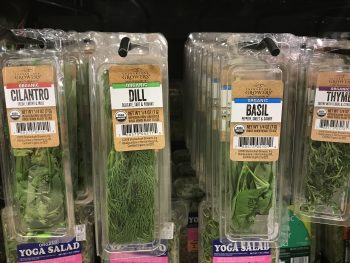
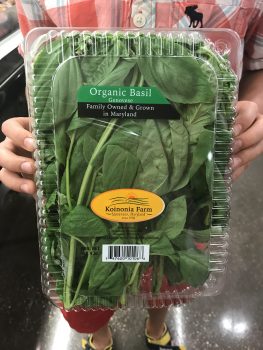
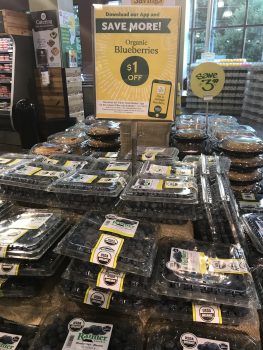
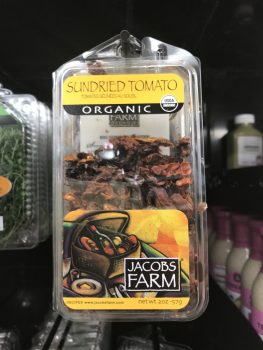
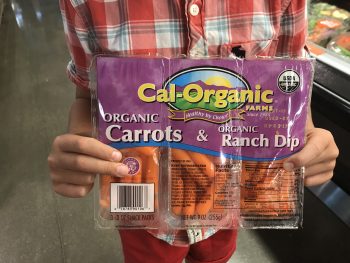
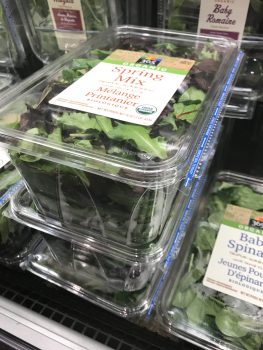
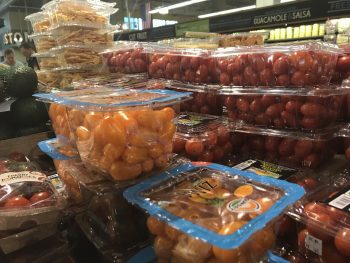
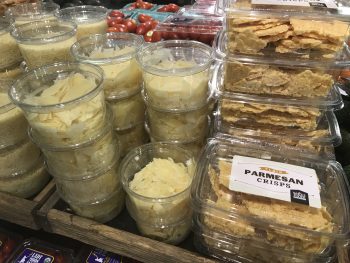
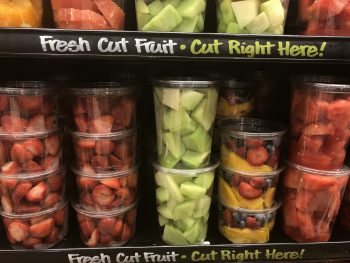
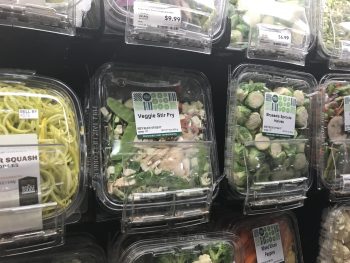
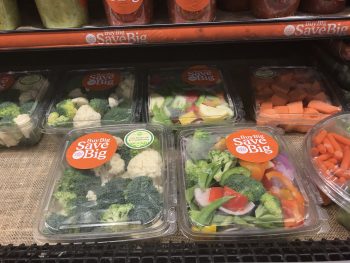
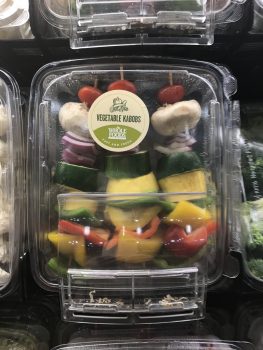
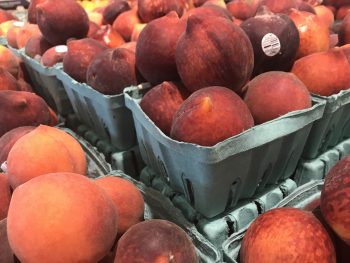
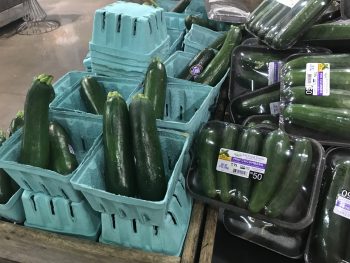
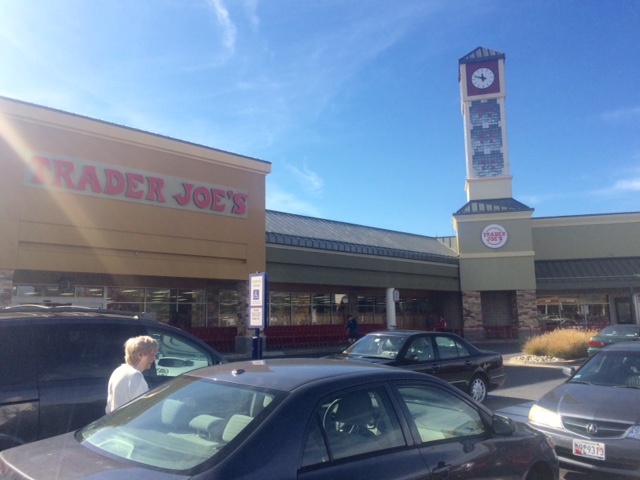
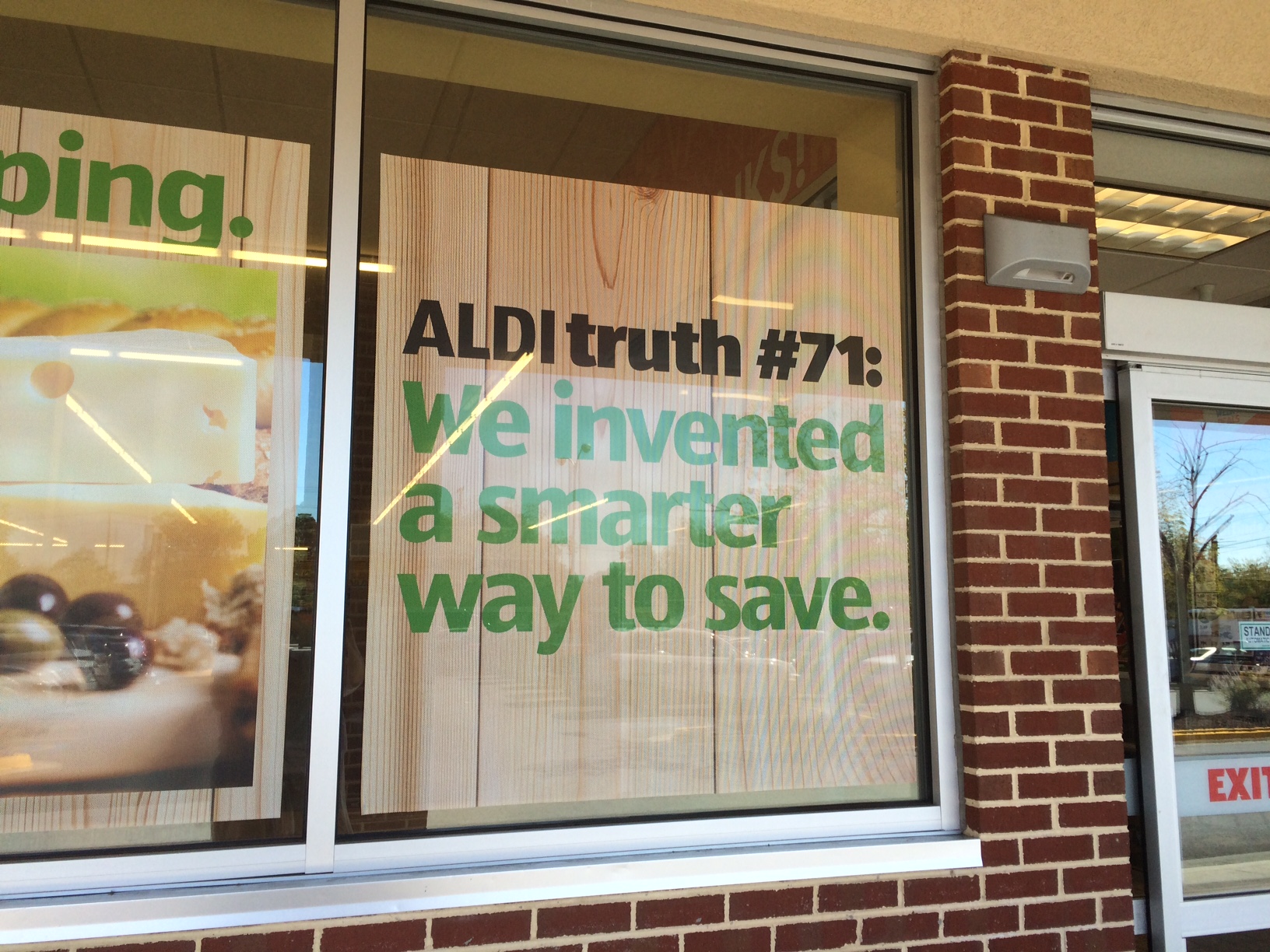

Catherine,
Forty years ago I joined a food co-op in California. Each week I carried my own containers to the store to shop. The store sold food from very large boxes and containers and nothing was pre-packaged. Most of the food was “organic” long before that word came into vogue. In exchange for purchasing food at rock-bottom prices, only enough above cost to pay for overhead of the location, each member had to donate 2 days a month to working in the co-op. The co-op was registered as a non-profit and had a board of directors, mostly our neighbors and friends.
I brought with me to the store re-usable plastic food storage containers with lids , such as Rubbermaid or Tupperware, in various sizes for purchasing grains, cereals, dried nuts and fruits, ground coffee, flour, olives, pickles, butter, cream cheese, yogurt. I also brought plastic and glass jars and bottles with lids, in various sizes, that I had washed out before-hand. These containers were for syrup, oil, vinegar, peanut butter, jam, and cookies. Loose items like fruit and vegetables were put in paper bags.
The containers were weighed (tare weight) before staff filled them with the product I wanted to buy. Stickers marked the code for each product in my container for calculating my purchase at check-out.
I wish we could re-create this efficient and environmentally friendly system in every neighborhood.
Margaret
Whaoh, impressive. Did you need more time for grocery than today?
Hi Catherine, I meant that France made a lot of progress and in a French house nowadays there are as many trash containers as in Germany or Austria. Waste separation is well organized in France now, only Austria that was better, is making no progress. The plastic production can, according to me, only be reduced through intelligent rules.
Here an article I read 2 days ago in my daily newspaper that might be interesting for you. http://derstandard.at/2000061530245/Forscher-errechnen-wie-viel-Plastik-jemals-produziert-wurde.
I try myself to avoid restaurants serving coffee or dishes in plastic, I buy vegetable at the farmers’ market and avoid buying things packed in plastic (but that is extremely difficult). As a consummer you do not always have the choice. Some people tries to live without waste, difficult to manage but if they manage it, we should at least try to be more aware. That is why I thank you for your post 🙂
Merci Christine!
That is all about education and education comes from a political will … I fear that this is not really the main concern of today’s USA… Maybe in some states or municipalities where the mayors are aware of environmental issues… I suppose this is quite marginal.
In Europe we think to be better. Governments tend to treat environmental issues with much more interest than in the past. The European Union has played a big role for the ecological awareness especially in southern countries like Italy, France, Spain or Portugal. Nevertheless we tend to use too much plastic as well, cut fruits and peeled vegetable ready for use are trendy… You mentioned plastic sleeved cucumbers, you find them in many supermarkets in Europe, organic or not. Regionalism and seasons are becoming a subject but the concern remains marginal. People do not know when what to buy, they want apples in July and strawberries in November, organic supermarkets are no ecological organization, they only want to make profits.
Raised in France, I have been living for 20 years in Austria and I was able to observe the changing behaviors in Austria and in France. For 20 years French people had no idea of recycling and did not sort their trash. After years of intense education campaigns, people are now sorting and are more and more aware. For 20 years Austrians were already sorting out trash and bought glass deposit bottles for milk and water. They bought toothpaste tubes that were not double packed boxes. This time is over, milk is packed in disposable Tetra Pack and water in PET, toothpaste tubes are boxed with visible marketing. When I see the content of the metal containers or bio-waste, I understand that educational campaigns in schools, TV, info screens in the subway should be re-started. Instead, the Viennese municipality tries to make sorting easier and has stopped recycling all types of materials, only PET bottles, metal, glass, paper and bio waste are recycled and a private company is collecting tetra packs.
Thank you for sharing your experience Christine. You nailed it.
After spending 10 days in Germany, I just traveled from Mainz to France, where I will also spend a couple of weeks. I lived in a German house with three trash containers under the sink (glass/plastic + organic waste + others) and I had problem to figure out what I could put in the “other” trash bin.
I’m staying now in a French house with 1 single bin under the sink. Easier… but I kind of feel bad…